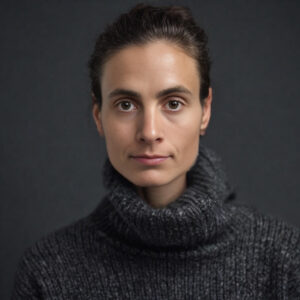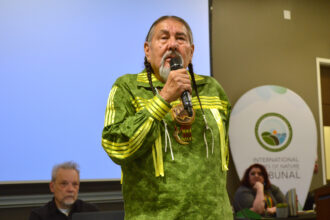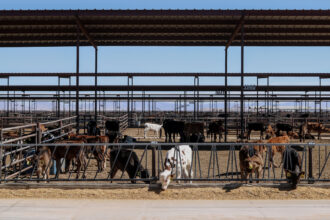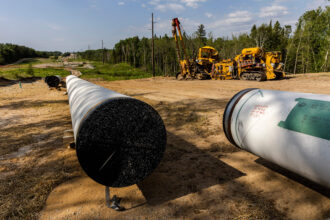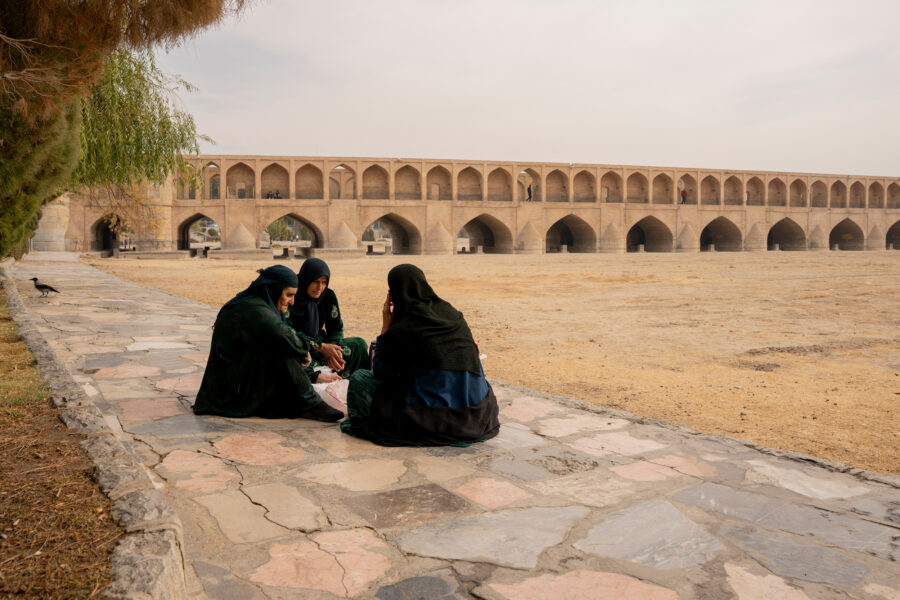In 2019, Carola Rackete faced serious jail time. She had just rescued dozens of migrants in dire condition off the coast of Libya. Defying the Italian government, Rackete docked her ship in Lampedusa to save the lives of those on board.
Today, Rackete, a 36-year-old German citizen, is one of the newest members of the European Parliament. Her 2024 election victory came despite a growing surge in right-wing, anti-environment and anti-immigration sentiment.
Her platform rested on the idea that environmental destruction is not just an issue of ecology but also civil rights, disproportionately affecting the world’s most vulnerable populations while driven by the policies and excessive consumption of wealthier nations.
Rackete—who ultimately prevailed in Italian court on grounds that she had a right to dock under humanitarian and maritime law—is unapologetic about disrupting the status quo on both sides of the aisle.
She’s a member of Europe’s Left party, but rejects the notion that “green capitalism” can save the planet, or that climate change will be solved by rich nations replacing their gas vehicles with electric ones. In her 2021 book, “The Time to Act Is Now,” Rackete calls on the world’s wealthy and privileged to stand in solidarity with the people most affected by climate change and economic injustice.
“People in the E.U. and the U.S. have access to education, healthcare and financial security,” she said in an interview with Inside Climate News. “We have democracy, even if it’s flawed. That gives us the ability and the responsibility to act.”
As a lawmaker, Rackete sees herself as a representative of global social movements, not just European voters. Her political work is guided by a council of advisors that includes Indigenous leaders from around the world, as well as a human guardian representing Antarctica—a place she has visited numerous times on scientific expeditions and whose legal rights she has fought to establish through the Antarctica Rights movement she co-founded.
Born in Preetz in northern Germany, Rackete studied nautical science, maritime transport and ecology, spending her early career aboard research vessels. Witnessing shrinking glaciers on expeditions to Earth’s polar regions prompted her to ask critical questions about the structural causes of climate change and biodiversity loss. She’s realized, she said, those problems can’t be solved in a capitalist, growth-based system.
One of her key initiatives since taking office has been the Seeds of Action Tour, which has taken her to communities across South America, Africa and Europe. She has met with activists fighting against lithium extraction in Argentina, coal mine closures without just transitions in Poland, mining pollution in Serbia and the planned expansion of a Tesla factory in Germany that would destroy part of an ancient forest.
Inside Climate News talked with Rackete about the tour and her broader agenda as an E.U. lawmaker.
This conversation has been lightly edited for length and clarity.
KATIE SURMA: Your Seeds of Action tour has taken you across multiple continents, connecting with environmental and social justice movements. What inspired you to launch this initiative, and what were you trying to achieve?
CAROLA RACKETE: Decisions made by European institutions have global consequences for both people and the environment. From a justice perspective, it’s essential to represent not just German voters, but also people worldwide who are affected by these policies and who are fighting for a livable, safe planet. That’s why we sought to connect with communities whose struggles are directly linked to E.U. corporations or institutions.
We also wanted to make it clear that being in Parliament doesn’t mean disconnecting from social movements. We are committed to spending time on the ground, meeting with people, and bringing their struggles to the institutional level.
Given the current political majorities in the E.U. Parliament, our ability to drive change from within is limited. However, we believe in using parliamentary resources to strengthen and support resistance efforts outside the institution—within communities and movements. We don’t see real change coming from the Parliament itself, but we hope to help communities in their fight against corporate exploitation and capitalist systems.

SURMA: You’ve visited communities facing extractivism, deforestation and displacement. Did any commonalities emerge for you?
RACKETE: A common thing happening in many countries is the repression of activists, particularly in states with fewer democratic freedoms. In Argentina, under the Milei government, regional constitutions have been changed to strip people of their rights. A similar, and possibly even worse, situation is unfolding in Tanzania.
In Ngorongoro, Tanzania, people have been denied their voting rights in recent elections, and the government is systematically defunding essential services, including healthcare, education and local governance.
This is particularly evident in Argentina’s Jujuy province, home to the country’s largest Indigenous population and rich in lithium mining interests. The government has cut funding for schools and other critical services, making life increasingly difficult for local communities in an apparent effort to push them out.
A similar pattern is playing out in Tanzania, where Maasai communities face targeted defunding and violent displacement.
Witnessing this firsthand was deeply shocking. It’s one thing to see political repression, but it’s another to watch governments deliberately strip children of access to vaccinations, schools and emergency medical services, essentially forcing communities to abandon their land. It’s a calculated strategy: weaken social services to break resistance.
[NOTE: A representative from the Tanzanian embassy in Washington, D.C., denied in a written statement that the government has intentionally withheld citizens’ rights or violently evicted Maasai people from Ngorongoro. “The Government of the United Republic of Tanzania wishes to assure the general public and the international community that the country abides by the rule of law,” the statement to Inside Climate News said in part.]
“There’s often an assumption that protesting is nearly impossible in autocratic states. While it is certainly difficult, it is not impossible.”
SURMA: Did you learn anything on the tour that was unexpected?
RACKETE: One of the most surprising places, both in terms of repression and resilience, is Serbia. The country is heavily affected by mining, yet it is also home to a powerful resistance movement, particularly among students. For nearly four months, protesters have taken to the streets to oppose government corruption. The movement has refused government concessions or handouts, and is staying committed to its core demands of ending corruption and stopping a controversial new lithium mining project in the Jadar Valley.
Three years ago, opposition to the mine sparked Serbia’s largest environmental protest in history, leading the Supreme Court to suspend the project. But last year, the government pushed the court to overturn that decision, reigniting demonstrations. Now, the protests have evolved into a larger movement, merging environmental activism with demands for democratic integrity.
Serbia’s last presidential election in 2022 was widely seen as illegitimate. President Aleksandar Vučić won … amid reports of voter coercion. State employees were allegedly forced to photograph their ballots as proof they had voted for the ruling party.
There’s often an assumption that protesting is nearly impossible in autocratic states. While it is certainly difficult, it is not impossible. Serbia is proof that resistance can persist even as democracy erodes. With democratic backsliding happening in countries around the world, including the U.S. and parts of Europe, it’s a reminder that social movements don’t simply disappear. People can fight back and turn history into a new direction.
[NOTE: A representative from the Serbian embassy in Washington D.C. said in a written statement that Vučić won the 2022 election with nearly 59 percent of votes. “The numbers speak for themselves,” the statement said. “President Vučić was elected by the citizens of Serbia through a fair and transparent process as was verified by international observers.”]
SURMA: How do you see these types of local struggles connecting to global environmental governance?
RACKETE: I want to talk about who holds the power to define what is right and wrong, particularly in the context of nature conservation.
Traditionally, many of us in the Global North have looked to figures like David Attenborough and other white conservationists as the ultimate authorities on protecting wildlife. But this perspective is massively problematic, especially in East Africa, where militarized “fortress conservation” continues to displace Indigenous communities. In Tanzania, the Maasai have been evicted from the Serengeti and pushed off their land around the UNESCO-listed Ngorongoro Conservation Area. Now, the government has ordered yet another relocation, affecting more than 100,000 people.
The point is that many Indigenous communities have lived on these lands for generations and understand best how to conserve them—not as national parks but as territories of life. Across the world, more communities are demanding self-organized conservation efforts, where they can establish their own governance structures to protect wildlife. There is still huge arrogance in white-led conservation movements.
This story is funded by readers like you.
Our nonprofit newsroom provides award-winning climate coverage free of charge and advertising. We rely on donations from readers like you to keep going. Please donate now to support our work.
Donate NowSURMA: What responsibilities do politicians and leaders in wealthy countries owe to people living outside their borders?
RACKETE: There are several arguments at play here. One is the well-proven responsibility that Europeans bear for the exploitation of both nature and people in former colonies. That exploitation continues today through trade agreements and economic policies. Acknowledging this should lead to tangible reparations or restoration with the communities affected, which is why my team supports decolonial struggles.
There’s also a more forward-looking, almost hopeful perspective. We can imagine a world governed not by national borders but by a shared global system. In reality, ecosystems are interconnected, economies are intertwined and our lives are increasingly linked across continents. At some point, it makes sense to think about a form of global governance and fair distribution within planetary boundaries.
Ideally, a future global governance system wouldn’t just represent people—it would also account for nature and ecosystems, recognizing their inherent rights and the necessity of protecting them.
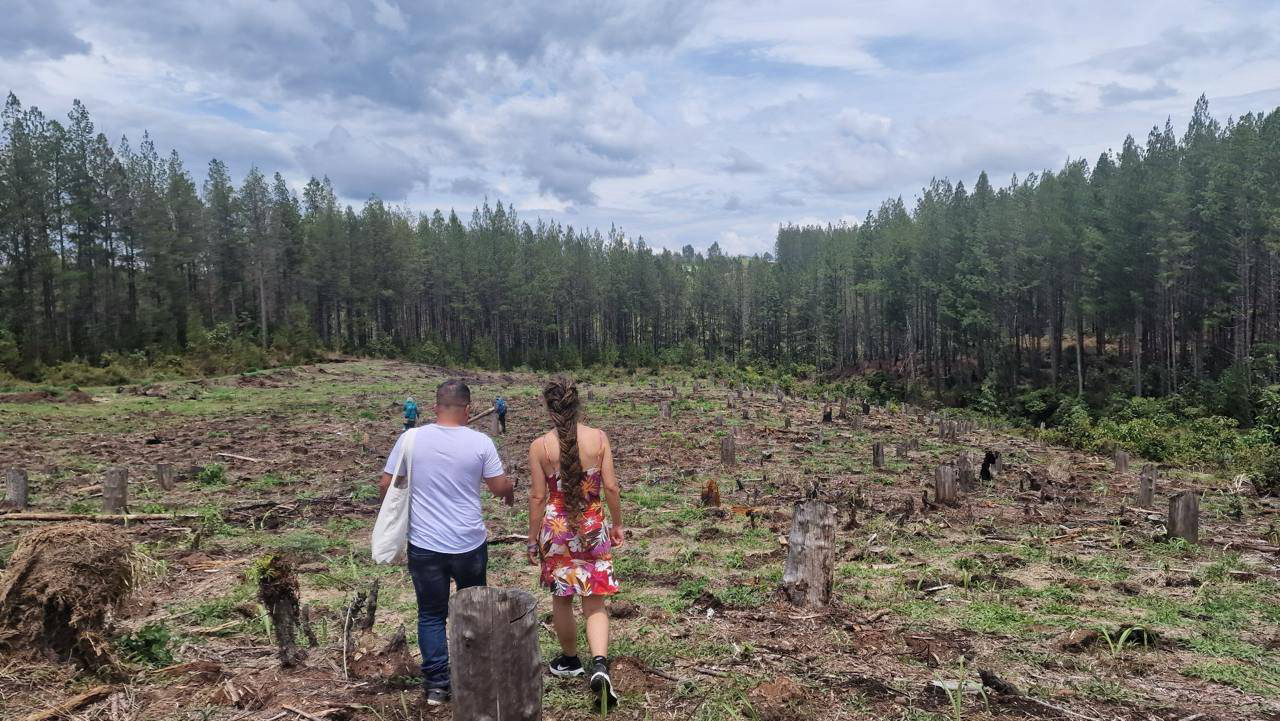
SURMA: You’ve implemented a unique advisory council to help guide your decision-making as a member of Europe’s Parliament. Can you explain what you’re doing and why?
RACKETE: Before I officially began my mandate as a member of Parliament last June, I was clear that I wanted my work to have a strong international focus. There’s always a risk of adopting a Eurocentric perspective, especially in a setting like the E.U. Parliament. One major limitation is that the people I can hire must have E.U. passports, which inevitably narrows the perspectives within my team.
We wanted to make sure we had outside perspectives to guide our decision-making and priorities as long as we are connected to this institution. That’s why we created an advisory council to help guide these choices.
The council has representatives from Latin America, Africa, Oceania and Asia. We know that no single person can truly represent an entire continent, but these people are Indigenous or local movement leaders, and having those regional perspectives is better than having none.
We also decided to include a representative from Antarctica, a very important region on this planet we felt was crucial to include because one of our goals is to support the global movement for the rights of nature.
SURMA: For readers who may not be familiar with it, the rights of nature movement seeks to advance the understanding that ecosystems are living beings with inherent rights to exist, evolve and regenerate—similar to how corporations have rights in most legal systems.
RACKETE: In the E.U., people talk extensively about corporate rights, as if they were living beings, but they rarely talk about other forms of life on this planet and the responsibilities we owe to that life. We talk a lot about making profits and how to grow the economy, but we say very little about the instability and the massive changes that we’re causing to Earth’s climate system or the destruction of ecosystems and how permanently this will impact life on Earth.
Participating in E.U. institutions comes with the risk of being drawn into that thinking. That’s why, for me, it’s quite important to think about the connection that exists between us humans and all other living beings on this planet. Instead of focusing solely on policy amendments and regulatory changes, we need to focus on the bigger picture, the interconnectedness of life and our responsibility to enable a safe future—not only for children but for life.
“Inequality fuels division. The solution lies in a fair and just distribution of resources we have.”
SURMA: There’s been a rise in right-wing governments who are rolling back policies to fight climate change and protect the environment. What do you attribute that to?
RACKETE: I think it’s a combination of factors. One major driver is backlash, particularly against the growing emancipation of women, queer people and people of color. Over the years, these groups have gained ground in public debates, pushed back more forcefully against patriarchy and white dominance and refused to be silenced as they once were. Their voices are now stronger and harder to ignore. The far right’s rise is in many ways a reaction to that. It is an attempt to push back against the possibility of greater freedom and equality for marginalized people.
At the same time, economic instability plays a significant role. Studies show that societies with strong social safety nets and smaller wealth gaps, like Norway and Iceland, tend to be more stable and less prone to political extremism. Inequality fuels division. The solution lies in a fair and just distribution of resources we have.
About This Story
Perhaps you noticed: This story, like all the news we publish, is free to read. That’s because Inside Climate News is a 501c3 nonprofit organization. We do not charge a subscription fee, lock our news behind a paywall, or clutter our website with ads. We make our news on climate and the environment freely available to you and anyone who wants it.
That’s not all. We also share our news for free with scores of other media organizations around the country. Many of them can’t afford to do environmental journalism of their own. We’ve built bureaus from coast to coast to report local stories, collaborate with local newsrooms and co-publish articles so that this vital work is shared as widely as possible.
Two of us launched ICN in 2007. Six years later we earned a Pulitzer Prize for National Reporting, and now we run the oldest and largest dedicated climate newsroom in the nation. We tell the story in all its complexity. We hold polluters accountable. We expose environmental injustice. We debunk misinformation. We scrutinize solutions and inspire action.
Donations from readers like you fund every aspect of what we do. If you don’t already, will you support our ongoing work, our reporting on the biggest crisis facing our planet, and help us reach even more readers in more places?
Please take a moment to make a tax-deductible donation. Every one of them makes a difference.
Thank you,






